Page Summary
-
Married couples who waited to live together are less likely to split up (see Fig. A).
-
Married couples are happier than cohabiting couples (see Fig. C and D).
- Religiously active married couples report more frequent and more satisfying sexual activity (see Fig. J and K).
Does having sex before marriage make people happier?
No. The happiest and most sexually fulfilled couples are those who wait until marriage.
Ok, but what does that actually mean?
Listen to this article
After the previous page’s look into whether sexual activity outside of marriage can be loving, you might be thinking, “well all that heady philosophy sounds nice in the abstract, but in the real world, people are happier when they’re able to have sex whenever they want, not when they’re told to wait until marriage.”
So let’s take a different approach and dig into some data. What are people reporting about their own relationships?

First, let’s look at cohabitation.1 After all, don’t people need to test out living together before they know if they want to spend a life together? Objection #1: Without a test run, wouldn’t couples have a greater risk of being miserable after the wedding?
For married couples who cohabit before getting engaged, 34% eventually split up (Figure A). For married couples who at least wait until engagement to live together (though we would certainly recommend waiting all the way until marriage), only 23% split up. So, the data would suggest that cohabitation is not necessary, and maybe even counterproductive, for marital happiness.

Take away from love the fullness of self-surrender, the completeness of personal commitment, and what remains will be a total denial and negation of it.
Karol Wojtyla (later Pope John Paul II)
Love and Responsibility pp.128-129
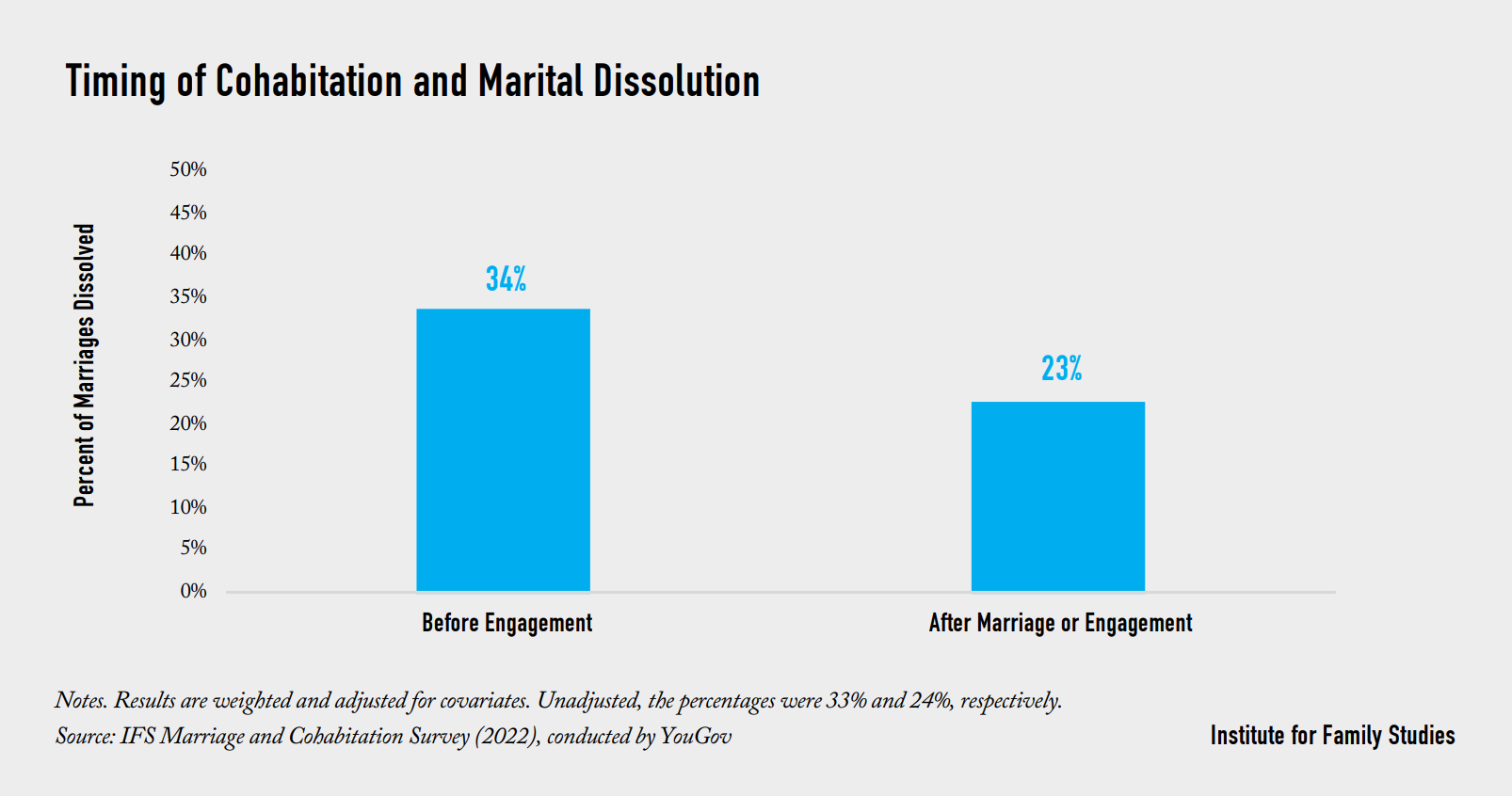
Figure A, Institute for Family Studies
Objection #2: But maybe couples who don’t believe in divorce are less likely to approve of cohabitation. If that’s the case, then they would be more likely to tough it out in “loveless” marriages than the people who accepted premarital cohabitation and divorce. After all, wouldn’t the cohabiting-then-marrying group only stay married if they were happy?
Well, polls don’t support that hypothesis either (see Fig. B).
If the hypothesis were true, we might expect divorcees to report higher levels of happiness than married couples, or at least higher than never-married people. But polls have consistently shown otherwise. Divorcees report basically the same levels of happiness as those who never married, well below married couples.
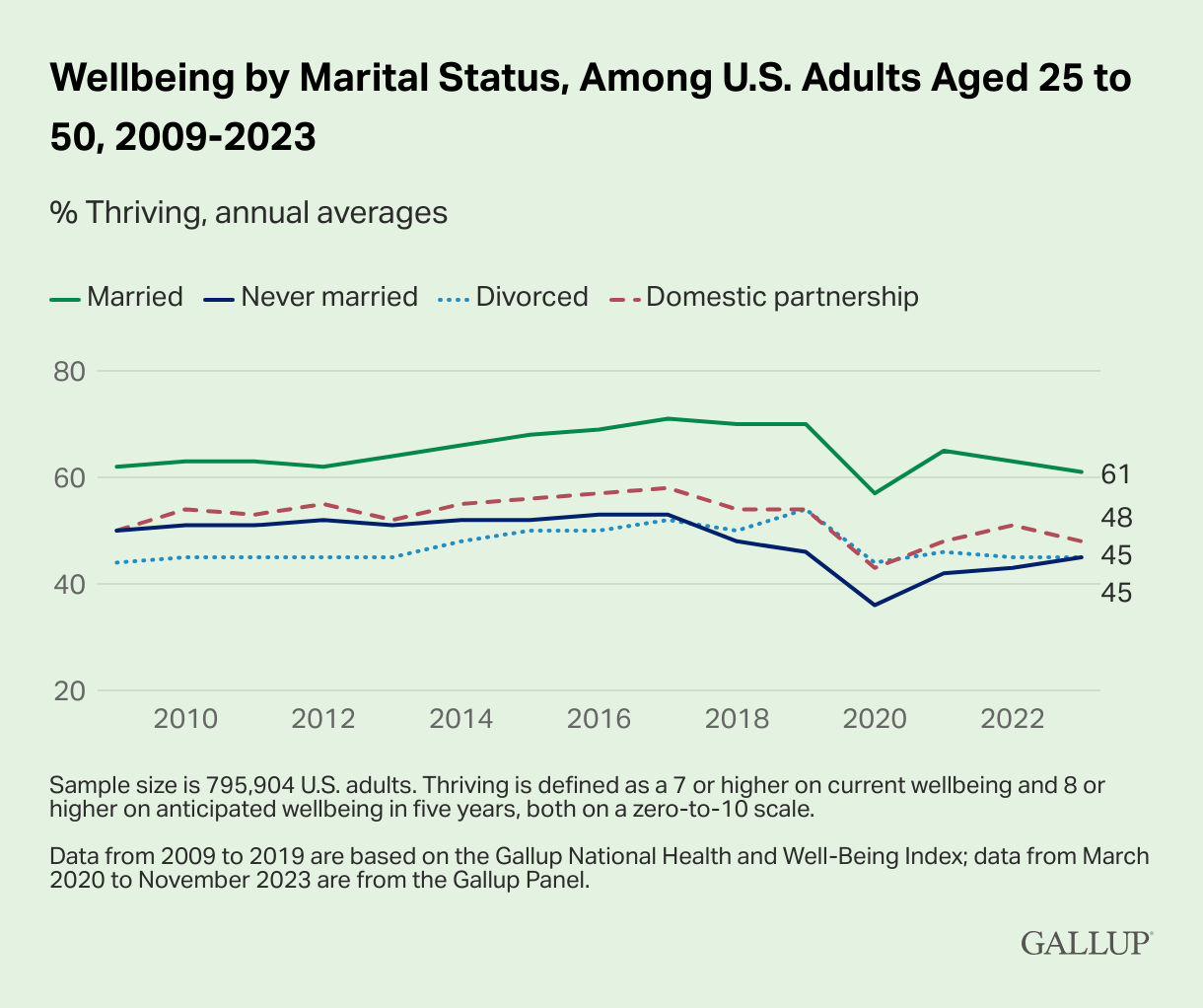
Fig. B, Gallup
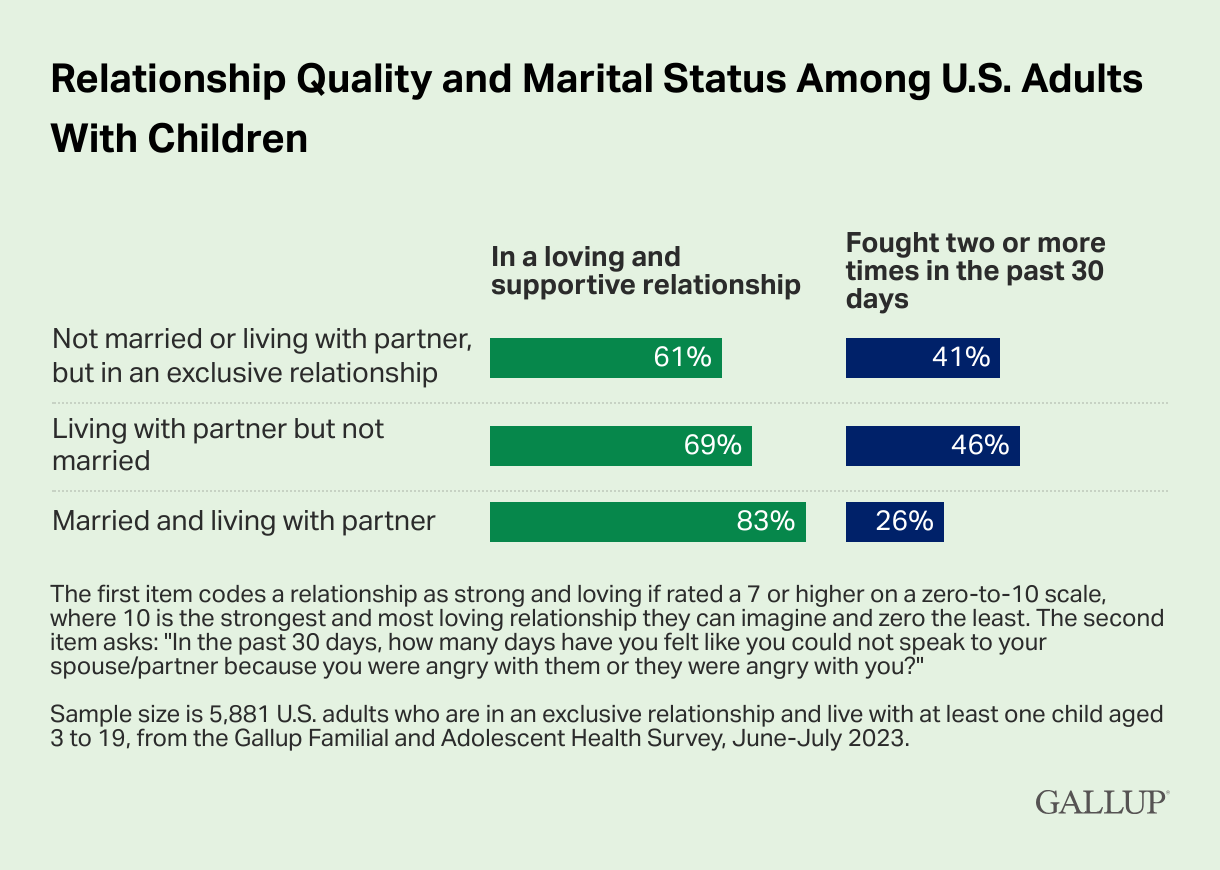
Fig. C, Gallup
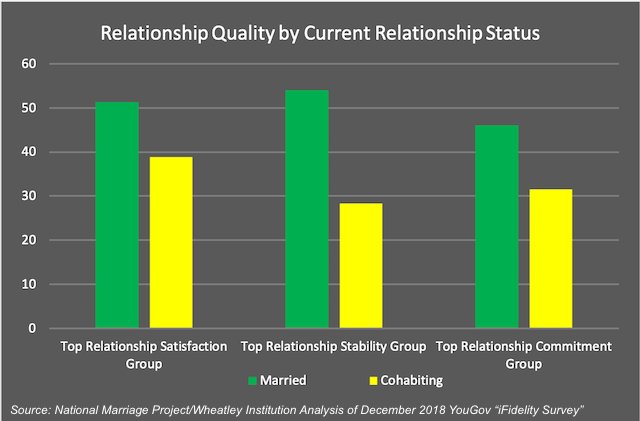
Fig. D, Institute for Family Studies
No on both counts (see Fig. E). Both husbands and wives are more satisfied in their marriages than cohabiting men and women.
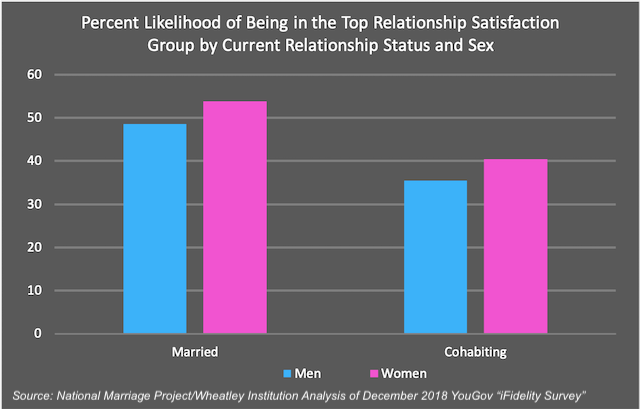
Fig. E, Institute for Family Studies
Even then, looking at only church-going couples, the difference persists (see Fig. F).
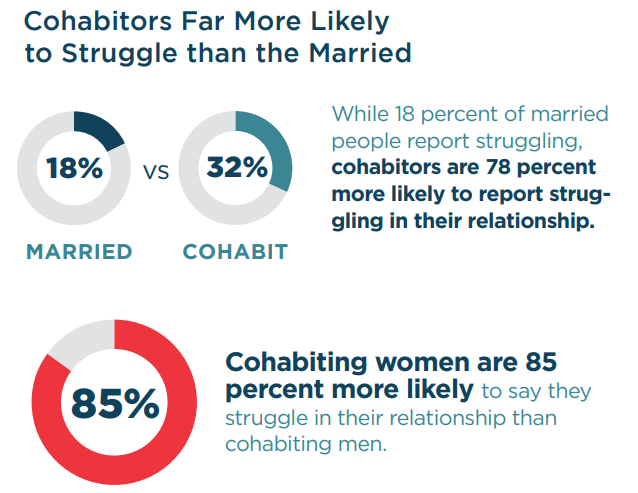
Fig. F, Communio
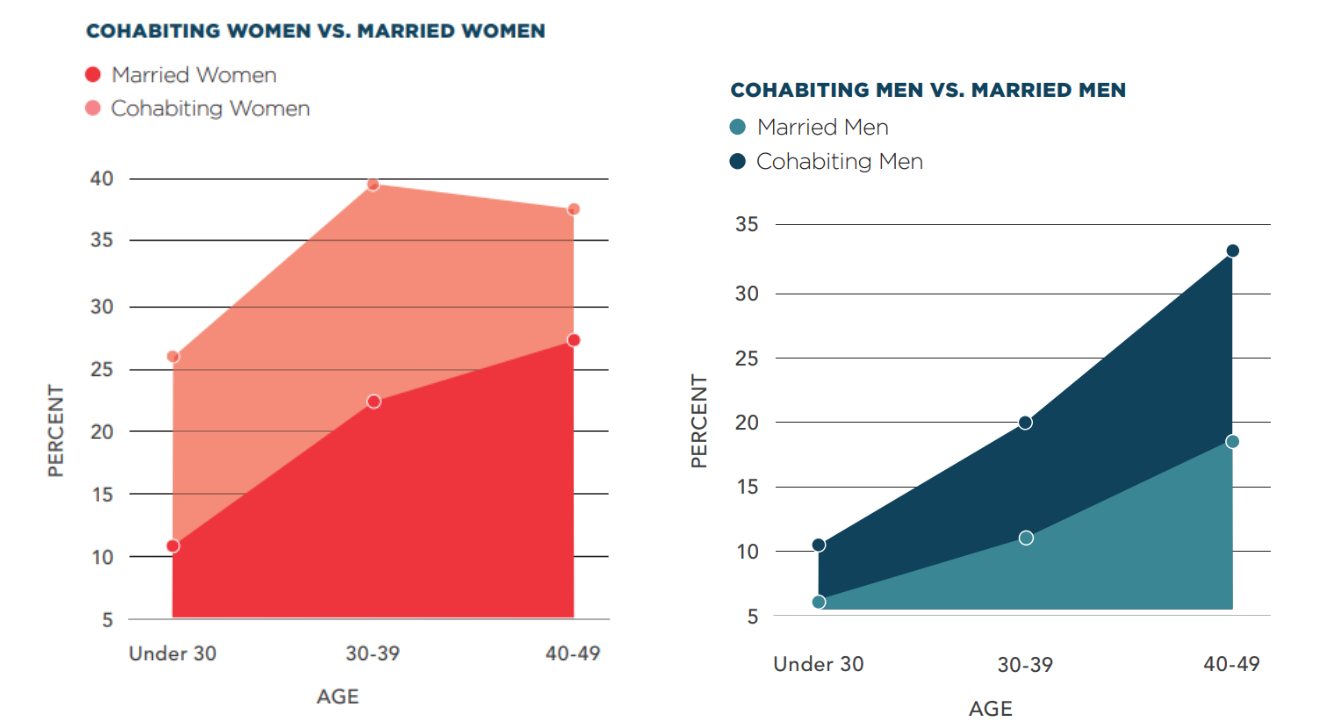
Fig. G, percentage of respondents only somewhat satisfied or worse in their relationship, Communio
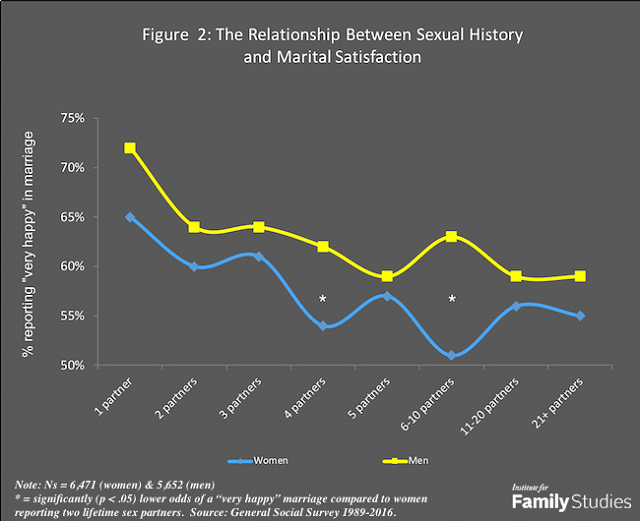
Fig. H, Institute for Family Studies
Objection #5: According to some online influencers who defend the double standard, there are different kinds of relationships, with some being happier in general, but less sexually satisfying, and others being more sexually satisfying but not as happy overall.
The research doesn’t support the influencers on either count (see Fig. I).
We see sexual history impacting the satisfaction of both men and women in the same way, with the least promiscuous reporting the highest satisfaction. Moreover, this is specifically in regard to sexual satisfaction, not just a more general satisfaction with life or relationships. Even there, the way to have more satisfying sex is to wait until marriage.
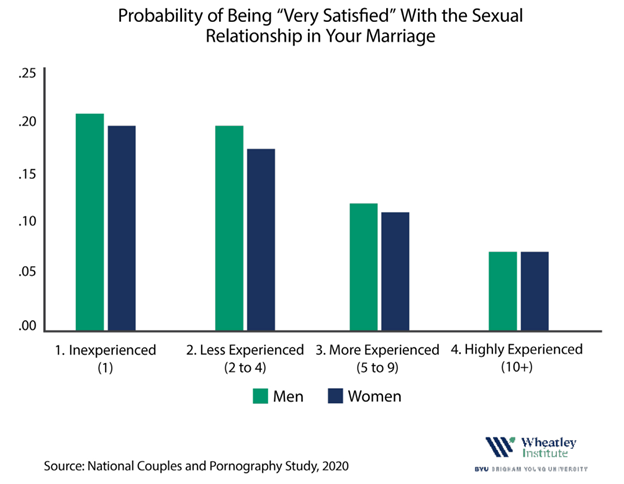
Fig. I, Wheatley Institute
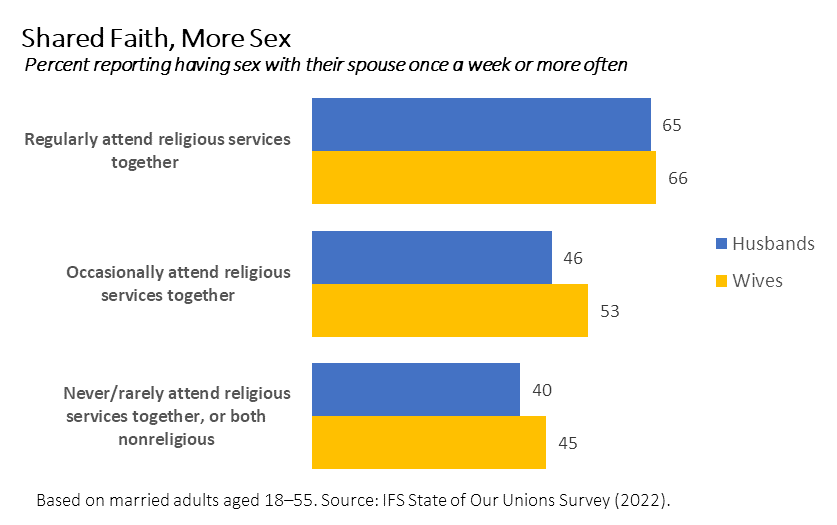
Fig. J, Institute for Family Studies via First Things
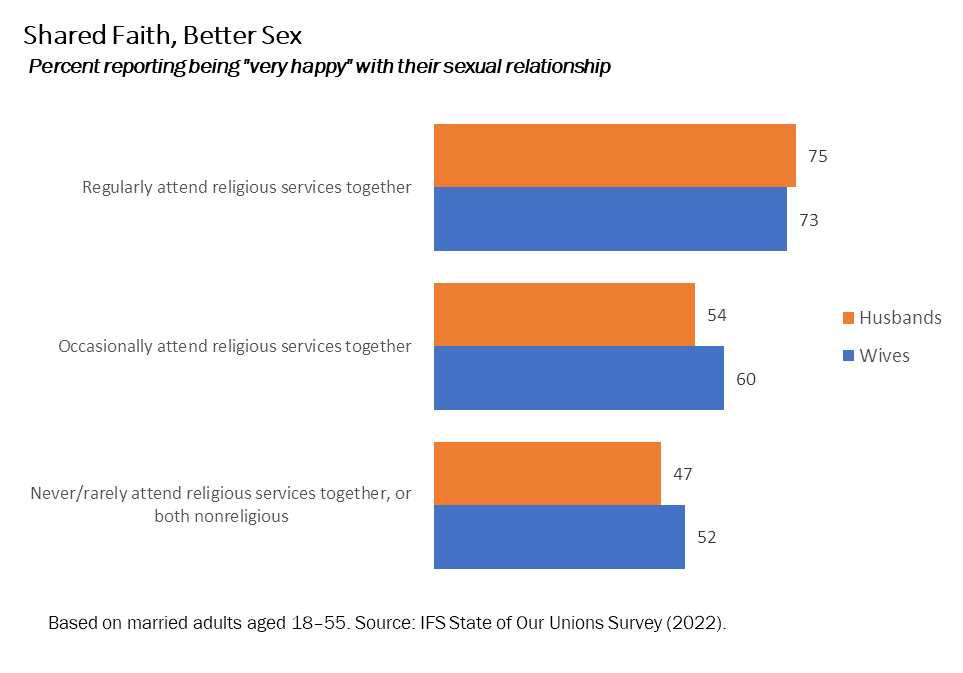
Fig. K, Institute for Family Studies via First Things
Of course, the ultimate goal shouldn’t just be more satisfying sexual activity. The only way to achieve that goal is not to seek it directly, but to incorporate it into the pursuit of higher goals: the good of the spouse both within the bedroom and outside it, and maybe even the love of God who is the source of all goodness. Then spouses can have satisfying sex, not as an end in itself, but as a secondary feature that’s part of a larger whole.
At this point, you might still be thinking that sex is still alright outside of marriage. After so much research showing that couples are subjectively happier when they wait until marriage, and all the philosophical explanation showing that, as an objective fact, sex can only be loving within marriage, it still might not be enough to convince you.
Have you asked yourself why that is? Why do so many of us in contemporary society seek pleasure instead of the other’s good, only to wind up experiencing less pleasure and more miserable relationships? If sex outside marriage doesn’t make us happier, why are we clinging to it?
1) While it’s not always true that unmarried couples that live together are sexually active, we are assuming this to be the common understanding for the vast majority of cohabiting couples. It’s also not true that unmarried couples who live separately are being chaste, but it’s definitely more likely when they’re not sharing a bed. Sexual activity independent of living situations will be discussed later in this article.
2) Rhoades, G. K., Stanley, S. M., & Markman, H. J. (2009). The pre-engagement cohabitation effect: A replication and extension of previous findings. Journal of Family Psychology, 23(1), 107–111. https://doi.org/10.1037/a0014358


